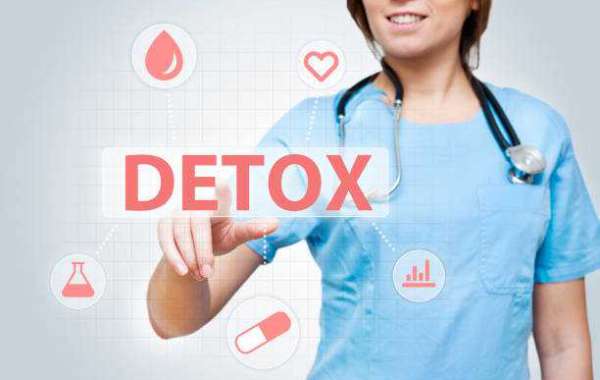Despite the stigma associated with substance abuse, there are many factoids about medical detoxification that you should know. The American Medical Association (AMA) encourages the treatment of substance dependence as a disease, which makes it very difficult for a patient to get help when they do not need it. There is hope for the future of the treatment, however, if you know how to recognize the warning signs of drug abuse and intervene before a patient reaches the point of medical detoxification.
Medical detox consists of a series of steps that aim to cleanse the body of addictive substances. This process is known as detoxification. A medical detox team consists of a physician, clinical staff, therapists, and nurses. Some facilities also employ advanced practice personnel to help clients overcome their withdrawal symptoms. It is a critical step in the recovery process and is a critical first step for recovering addicts. Here are some of the most important facts about medical detoxification.
The length of the detox can vary significantly, depending on the type of substance being detoxified. The initial phase of detoxification aims to remove the substances from the body, and withdrawal symptoms can last anywhere from a few days to several months. The length of the detox is based on the type of substance being treated and the individual's physical and mental health. The duration of the detox depends on the nature of the addiction, route of administration, current family/social support, and presence of co-occurring conditions. The longer the detox, the more likely it is that the patient will experience severe withdrawal symptoms.
While there are many benefits to medical detox, there are some negative side effects. Withdrawal from certain substances can be life-threatening, especially benzodiazepines and alcohol. The symptoms of opioid withdrawal can be very uncomfortable and can cause people to relapse to these substances. For these reasons, medical detox is a vital step in the recovery process for those who are struggling with addiction. The treatment is also an essential part of regaining control of their lives and a happier, healthier life.
In addition to treating physical and mental symptoms, medical detox is often a necessary part of the recovery process. Patients who are addicted to drugs or alcohol often need to undergo a detoxification before they can return to their regular lifestyles. The treatment should be long enough to allow the patient to overcome the withdrawal symptoms and resume a normal life. While it may seem difficult for some, it is not impossible. For those who are already struggling with a mental health issue, medical detox is an excellent option.
While undergoing medical detoxification does not eliminate the need for ongoing addiction treatment, it can help the patient cope with the withdrawal symptoms. This can help them focus better and concentrate on their recovery. If you're interested in learning more about medical detox, contact Laguna Treatment Hospital. Their staff can help you transition into ongoing treatment. You'll want to make sure to ask about all the benefits of medical detox before making a decision.
Typically, medical detox lasts for a few days, depending on the substance. During this period, the patient will experience symptoms of withdrawal, which will last for days or even months. The length of detoxification will depend on the type of substance being detoxed, the severity of the addiction, and the type of treatment. The process of medical detoxification should be a positive experience for the patient. The process is not easy for everyone, and the withdrawal symptoms may interfere with the recovery process.
The TIP on medical detoxification provides a historical overview of changes in the perception of detoxification services. It introduces the key concepts of the field and highlights the differences between treatment and detoxification. It addresses legal and administrative issues related to medical and social issues, and provides a set of performance measures for medical detox. Its authors gathered a variety of perspectives to create this report. The book is written by a panel of experts with a wide range of backgrounds.
A comprehensive care plan will help patients recover from their addiction. It is important to emphasize the importance of continuous care and to avoid side effects that may result from substance abuse. The patient's condition will be monitored closely throughout the program to ensure that he or she is on the right track. The medical detox process has several benefits. The detoxification process is the most effective if the patient is stable and has no withdrawal symptoms.








